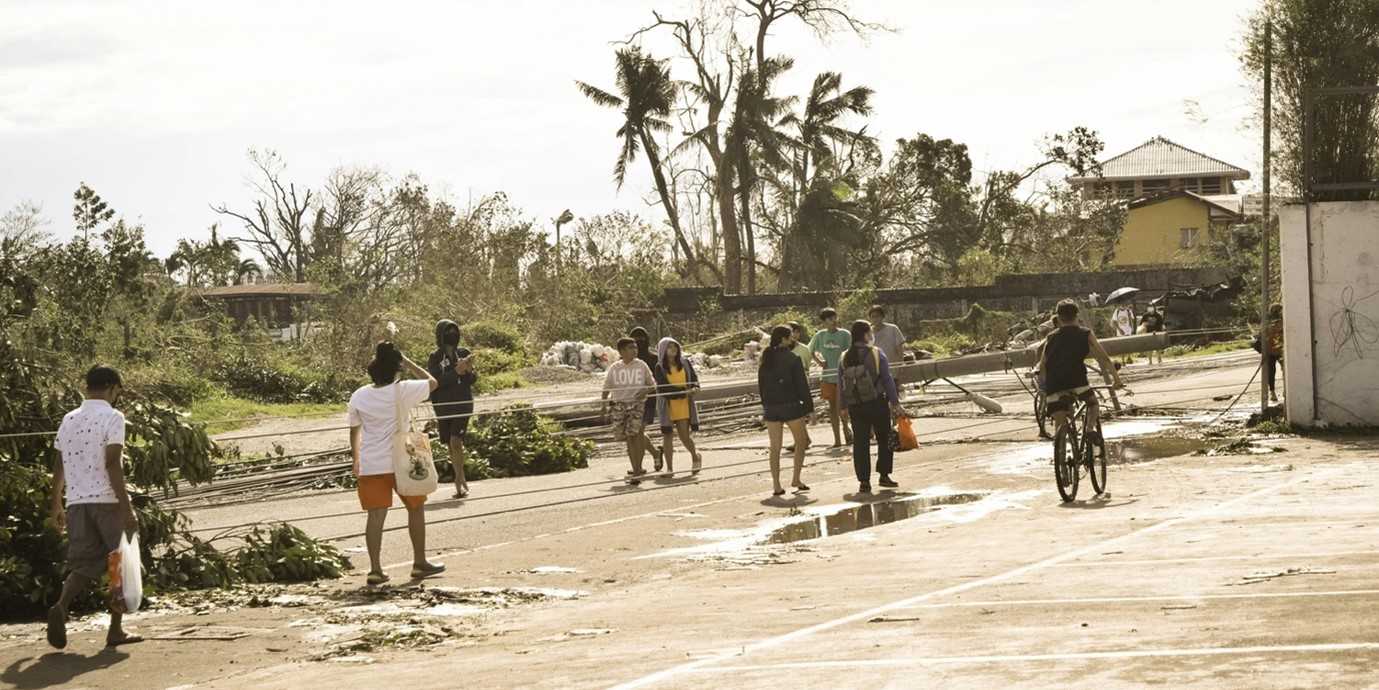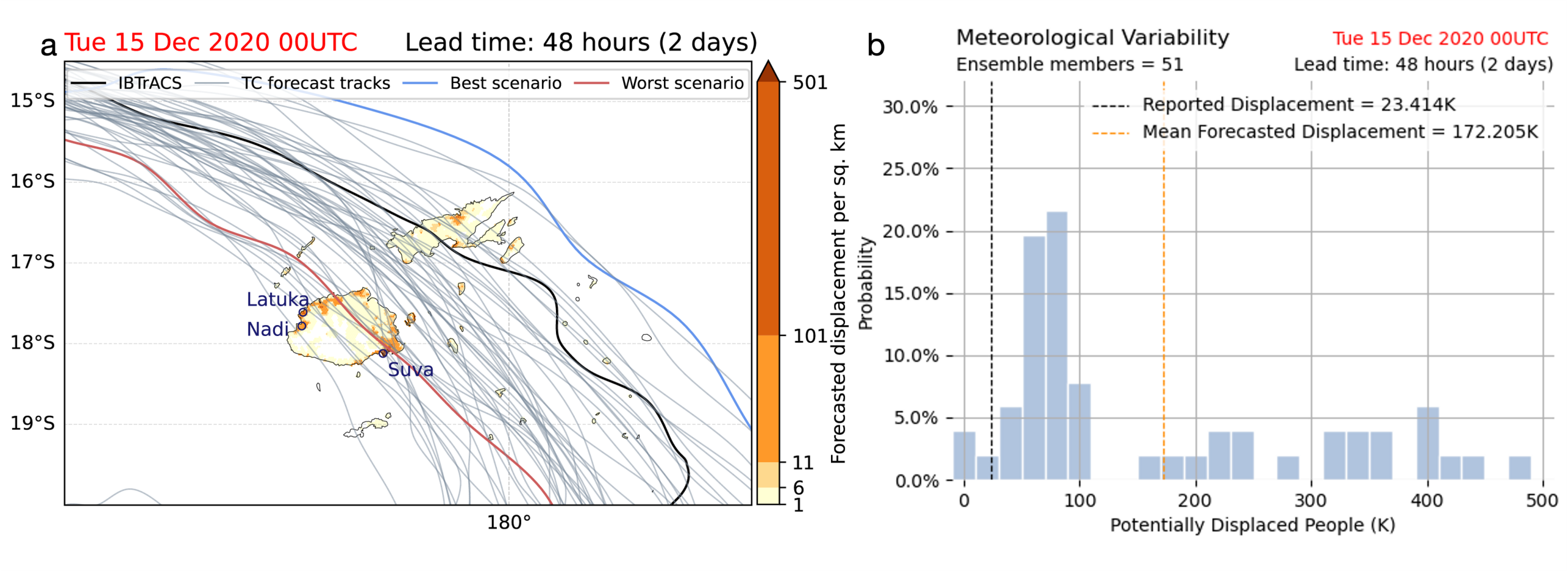Tropische Wirbelstürme (Tropical cyclones,TCs) vertreiben jedes Jahr Millionen von Menschen von ihrem Wohnort. Pui Man Kam und Kolleg:innen an der ETH Zürich haben ein globales Open-Source-System entwickelt. Damit kann genauer vorhergesagt werden, wie viele Menschen durch tropische Wirbelstürme vertrieben werden. (Artikel auf Englisch)

Researchers of the Weather and Climate Risk Group at ETH Zurich have developed a tropical cyclone forecasting system that goes beyond current early warning systems, which focus on physical characteristics. The impact-based forecasting system systematically translates weather information into displacement risk by combining event likelihood and severity, population exposure, and their vulnerability. The system uses open data and open-source code, so it can be used anywhere in the world, including resource-limited regions. In their paper, the researchers present a case study of Cyclone Yasa in Fiji to demonstrate the displacement forecast system. They emphasise the need for probabilistic impact forecasts, particularly the "hit-or-miss" scenarios in typical island settings.
The researchers highlight that the uncertainties in the impact forecast stem not only from the probabilistic weather forecast, but also from other input data and their interaction with the weather forecast. By conducting the global uncertainty and sensitivity analysis for all past TC displacement events from 2017-2020, the study finds that weather forecast uncertainty dominates at longer lead times, while vulnerability uncertainty becomes more significant near landfall. This comprehensive approach to uncertainty analysis aims to support better informed decision making for anticipatory action, allowing stakeholders to plan according to their specific risk profiles.
The research is a collaboration between ETH Zurich and the Internal Displacement Monitoring Centre (IDMC), which promotes open science initiatives and highlights the growing importance of academic-stakeholder partnerships in addressing climate change-related extreme events.
Reference
Kam PM, Ciccone F, Kropf CM et al.: Impact-based forecasting of tropical cyclone-related human displacement to support anticipatory action. Nat Commun 15, 8795 (2024), doi: externe Seite 10.1038/s41467-024-53200-w
